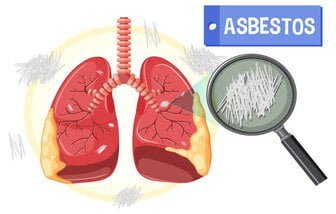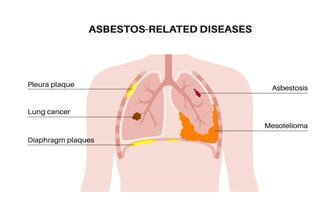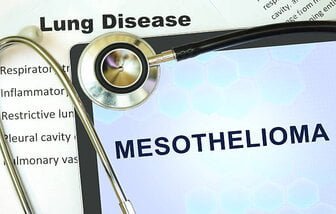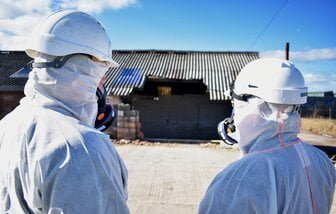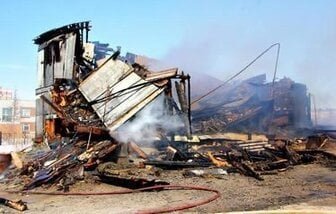What is Mesothelioma
Mesothelioma is a rare and aggressive cancer mainly caused by asbestos exposure, affecting the lining of the lungs, abdomen, heart, or testes. Early detection is crucial due to its challenging diagnosis and poor prognosis. Learn about the types, symptoms, causes, risk factors, and treatment options for mesothelioma, and the importance of prevention and awareness to reduce the risk of asbestos exposure.
Understanding Mesothelioma: Causes, Symptoms, and Treatment Options
Mesothelioma is a rare and aggressive form of cancer that primarily affects the lining of the lungs, abdomen, or heart. This disease is mainly associated with asbestos exposure, which makes awareness and early diagnosis crucial.
Causes of Mesothelioma
The primary cause of mesothelioma is exposure to asbestos fibers. Asbestos is a mineral once widely used in construction, insulation, and other industries due to its resistance to heat and corrosion.
When asbestos fibers are inhaled or ingested, they can become lodged in the mesothelium—the protective lining covering many internal organs—leading to inflammation and, over time, the development of cancerous cells.
Symptoms of Mesothelioma
Symptoms of mesothelioma can vary depending on the location of the cancer. Common signs include chest pain, persistent cough, shortness of breath, and unexplained weight loss.
Abdominal mesothelioma may present with abdominal pain, swelling, and changes in bowel habits. Due to the nonspecific nature of these symptoms, mesothelioma is often diagnosed at an advanced stage.
Treatment Options for Mesothelioma
Treatment for mesothelioma typically involves a combination of surgery, chemotherapy, and radiation therapy. The choice of treatment depends on the stage of the disease, the location of the tumors, and the overall health of the patient.
In some cases, emerging treatments such as immunotherapy and targeted therapy may offer new hope for patients. It is essential to consult with a specialist to determine the most appropriate treatment plan.
Conclusion
Understanding mesothelioma, its causes, symptoms, and available treatment options is vital for early intervention and better outcomes. If you or a loved one may have been exposed to asbestos, it is important to seek medical advice and regular screenings to ensure early detection and treatment.

Mesothelioma, a rare and aggressive form of cancer, is categorized based on the location of the cancer cells. Understanding the different types of mesothelioma is crucial for diagnosing and determining the most effective treatment options. The four primary types of mesothelioma are pleural, peritoneal, pericardial, and testicular, each affecting different regions of the body and presenting unique symptoms.
Pleural Mesothelioma: This is the most common type, accounting for approximately 75% of all mesothelioma cases. Pleural mesothelioma affects the lining of the lungs, known as the pleura. Symptoms often include persistent coughing, chest pain, shortness of breath, and unexplained weight loss. The disease’s proximity to the respiratory system often leads to breathing difficulties, making it crucial to seek medical attention if these symptoms persist.
Peritoneal Mesothelioma: Representing about 20% of cases, peritoneal mesothelioma occurs in the lining of the abdomen, called the peritoneum. Symptoms typically include abdominal pain and swelling, nausea, vomiting, and changes in bowel habits. This type of mesothelioma can also lead to fluid buildup in the abdomen, known as ascites, which contributes to the swelling and discomfort.
Pericardial Mesothelioma: This rare type affects the pericardium, the lining surrounding the heart, and accounts for roughly 1-2% of mesothelioma cases. Symptoms often include chest pain, irregular heartbeats, shortness of breath, and fatigue. Due to its location, pericardial mesothelioma can significantly impact heart function, making early detection and treatment vital.
Testicular Mesothelioma: The rarest type, testicular mesothelioma, affects the lining of the testes, known as the tunica vaginalis. Symptoms may include swelling or lumps in the testes, often discovered during a routine physical exam. Due to its rarity, testicular mesothelioma is less understood compared to other types, and research is ongoing to better comprehend its behavior and treatment options.
Each type of mesothelioma presents distinct challenges and symptoms, necessitating tailored diagnostic and treatment approaches. Awareness of these differences enhances early detection and improves the chances of effective intervention.
Mesothelioma is a rare but aggressive form of cancer primarily caused by exposure to asbestos. Asbestos is a group of naturally occurring fibrous minerals that were widely used in construction, shipbuilding, and various industrial applications due to their resistance to heat and corrosion. When asbestos-containing materials are disturbed, microscopic fibers can be released into the air. These fibers, when inhaled or ingested, can become lodged in the lining of the lungs, abdomen, or heart, causing inflammation and scarring over time. This chronic irritation can lead to cellular damage and, eventually, the development of mesothelioma.
Occupational exposure remains the most significant risk factor for mesothelioma. Jobs in construction, manufacturing, shipyards, and mining are particularly high-risk due to the historical use of asbestos in these industries. Workers in these fields are more likely to encounter asbestos-containing materials and thus are at a heightened risk for inhaling or ingesting asbestos fibers. Additionally, family members of these workers may also be at risk due to secondary exposure, as fibers can be carried home on clothing or skin.
While asbestos exposure is the predominant cause, other factors can also contribute to the development of mesothelioma. Genetics plays a role; individuals with a family history of mesothelioma may have a higher susceptibility to the disease. Moreover, exposure to other fibrous minerals such as erionite—a naturally occurring mineral similar to asbestos—has been linked to mesothelioma in certain regions.
Understanding the causes and risk factors associated with mesothelioma is crucial for prevention and early detection. Efforts to minimize exposure to asbestos and other hazardous minerals, coupled with regular health screenings for at-risk populations, can significantly reduce the incidence of this deadly cancer. By recognizing the occupations and environments that pose the highest risk, effective safety measures and regulations can be implemented to protect workers and their families from the devastating effects of mesothelioma.
Mesothelioma, a rare and aggressive cancer primarily affecting the lining of the lungs, abdomen, or heart, often presents with symptoms that vary based on its type. Common manifestations of pleural mesothelioma, which impacts the lung lining, include shortness of breath, persistent chest pain, and a chronic cough. Patients may also experience unusual weight loss, fatigue, and swelling in the chest area.
In cases of peritoneal mesothelioma, affecting the abdominal lining, symptoms often comprise abdominal pain and swelling, nausea, and changes in bowel habits. Pericardial mesothelioma, though rarer, can cause symptoms such as chest pain, irregular heartbeats, and difficulty breathing. These non-specific symptoms frequently overlap with other conditions, complicating early diagnosis.
Diagnosing mesothelioma involves a multifaceted approach. Initial steps often include a detailed medical history and physical examination. Imaging tests are instrumental in identifying abnormalities; chest X-rays might reveal fluid accumulation, while CT scans provide detailed images of the affected areas. These imaging techniques are crucial in detecting the disease’s extent and guiding further diagnostic procedures.
A definitive diagnosis typically requires a biopsy, wherein a tissue sample is extracted for microscopic examination. Various biopsy methods exist, including needle biopsy, thoracoscopy, and laparoscopy, depending on the tumor’s location. Pathologists analyze the tissue to confirm mesothelioma and determine its type and stage.
Blood tests, though not conclusive, can aid in the diagnostic process. Elevated levels of certain biomarkers, such as mesothelin-related proteins, may indicate mesothelioma. However, these tests are usually supplementary, as they are not specific enough to diagnose the disease independently.
Early detection of mesothelioma remains challenging due to its long latency period and symptom similarity with other conditions. Continuous advancements in diagnostic techniques and increased awareness are vital in improving early diagnosis, ultimately enhancing patient outcomes and treatment efficacy.
Mesothelioma, a rare and aggressive form of cancer primarily caused by asbestos exposure, progresses through four distinct stages. The staging of mesothelioma is integral in determining both the treatment approach and the prognosis for patients. Staging is typically assessed using the TNM (Tumor, Node, Metastasis) system, which considers the size of the tumor, the involvement of lymph nodes, and the extent of metastasis.
In Stage 1 mesothelioma, the cancer is localized and confined to the lining of one lung or the peritoneum. At this early stage, patients have the most favorable prognosis, and treatment options may include surgery, chemotherapy, and radiation therapy, with the aim of complete removal of the cancerous tissue. The five-year survival rate for Stage 1 patients can be as high as 20%, depending on various factors such as the patient’s overall health and response to treatment.
Stage 2 mesothelioma indicates some spread to nearby lymph nodes or adjacent structures, but it remains relatively localized. Treatment often involves a multimodal approach, combining surgery with adjuvant therapies. While the prognosis is slightly less favorable than Stage 1, some patients still achieve extended survival with aggressive treatment. The five-year survival rate for Stage 2 mesothelioma is approximately 12%.
When mesothelioma progresses to Stage 3, the cancer has spread more extensively within the chest cavity or peritoneal cavity and may involve distant lymph nodes. At this advanced stage, surgery is often not a viable option, and treatment focuses on palliative care to manage symptoms and improve quality of life. The five-year survival rate drops to around 8% for Stage 3 patients.
Stage 4 mesothelioma is the most advanced, with cancer having metastasized to distant organs and tissues. Treatment at this stage is primarily palliative, aimed at relieving symptoms and extending survival as much as possible. The prognosis for Stage 4 mesothelioma is poor, with a five-year survival rate of less than 5%, but emerging treatments and clinical trials offer hope for some patients.
Several factors influence the overall outlook for mesothelioma patients, including age, overall health, and the specific subtype of mesothelioma. Early detection and advances in treatment continue to improve survival rates and quality of life for many patients. Understanding the stages of mesothelioma and their impact on prognosis can help patients and their families make informed decisions about their care.
Mesothelioma, a rare and aggressive form of cancer largely associated with asbestos exposure, presents a complex range of treatment challenges. The selection of a suitable treatment plan is highly individualized, taking into account the patient’s overall health, the stage of the disease, and specific characteristics of the mesothelioma. Several conventional and emerging treatment options are available, each with distinct goals and mechanisms.
Surgery is often considered when mesothelioma is diagnosed at an early stage. Surgical procedures, such as pleurectomy/decortication or extrapleural pneumonectomy, aim to remove as much of the cancerous tissue as possible. The primary goal of surgery is to achieve remission or significantly reduce tumor burden, thereby improving quality of life and potentially extending survival.
Chemotherapy involves the use of potent drugs to target and kill cancer cells. In mesothelioma treatment, a common regimen includes a combination of pemetrexed and cisplatin. Chemotherapy can be administered before surgery to shrink tumors, after surgery to eliminate residual cancer cells, or as a standalone treatment to manage symptoms and slow disease progression. While it may not cure mesothelioma, chemotherapy has been shown to prolong life and improve patient outcomes.
Radiation therapy employs high-energy beams to destroy cancer cells and shrink tumors. It is often used in conjunction with surgery and chemotherapy to maximize treatment efficacy. For some patients, radiation can help control pain and other symptoms by targeting specific areas affected by mesothelioma. Advances in radiation techniques, such as intensity-modulated radiation therapy (IMRT), allow for more precise targeting of tumors, minimizing damage to surrounding healthy tissue.
Emerging treatments, including immunotherapy and targeted therapy, offer new hope for mesothelioma patients. Immunotherapy harnesses the body’s immune system to recognize and attack cancer cells. Drugs like pembrolizumab and nivolumab have shown promise in clinical trials. Targeted therapy, on the other hand, involves drugs designed to target specific genetic mutations within cancer cells. By focusing on these mutations, targeted therapies can potentially offer more effective treatment with fewer side effects compared to conventional methods.
The goals of mesothelioma treatment can vary significantly depending on the stage of the disease and the patient’s individual circumstances. For some, the objective may be to achieve remission or significantly prolong life. For others, treatment may focus on managing symptoms and improving quality of life. A multidisciplinary approach, involving oncologists, surgeons, radiologists, and palliative care specialists, ensures that each patient receives a comprehensive and personalized treatment plan.
Living with mesothelioma presents a multitude of challenges that extend beyond the physical domain. Patients often face an uphill battle in managing symptoms such as persistent cough, chest pain, and difficulty breathing. Effective symptom management is crucial for maintaining quality of life. This may involve a combination of medications, therapies, and lifestyle adjustments tailored to each individual’s needs.
Maintaining quality of life is paramount. This can be achieved through a holistic approach that incorporates not only medical treatments but also nutritional guidance, physical activity, and complementary therapies such as acupuncture or massage. Regular consultations with a multidisciplinary healthcare team can ensure that all aspects of the patient’s well-being are addressed.
The emotional and psychological impact of mesothelioma cannot be underestimated. Feelings of anxiety, depression, and isolation are common among patients. Access to emotional and psychological support is essential. Professional counseling, support groups, and therapy sessions can provide a safe space for patients to express their concerns and fears, thereby enhancing their mental well-being.
Palliative care plays a pivotal role in the management of mesothelioma. Unlike curative treatments, palliative care focuses on relieving symptoms and improving the patient’s comfort. This type of care involves a team of healthcare professionals who work together to provide comprehensive support, addressing not just physical symptoms but also emotional and spiritual needs.
Patients and their families can benefit from various resources and support groups. Organizations such as the Mesothelioma Applied Research Foundation and the American Cancer Society offer valuable information, advocacy, and support services. These resources can be instrumental in navigating the complexities of living with mesothelioma, offering both practical assistance and a sense of community.
Living with mesothelioma is undeniably challenging, but with the right support and resources, patients can find ways to manage their symptoms, maintain their quality of life, and receive the emotional and psychological care they need.
Mesothelioma, a rare and aggressive cancer linked to asbestos exposure, underscores the critical need for effective prevention strategies and increased awareness. Reducing the risk of asbestos exposure is paramount, particularly for individuals working in industries such as construction, shipbuilding, and manufacturing, where asbestos use was historically prevalent.
One of the primary methods to mitigate asbestos exposure is the use of appropriate protective gear. This includes wearing respirators, gloves, and protective clothing designed to prevent asbestos fibers from coming into direct contact with the skin or being inhaled. Adherence to safety regulations set forth by occupational health standards, such as those from the Occupational Safety and Health Administration (OSHA), is essential. These regulations often mandate regular monitoring of air quality and proper handling and disposal of asbestos-containing materials.
Public health initiatives play a pivotal role in mesothelioma prevention. These initiatives involve educating workers and the general public about the dangers of asbestos exposure and the importance of early detection. Campaigns and training programs are designed to spread knowledge about safe practices and the health risks associated with asbestos. Additionally, community outreach programs can provide valuable resources and support to those at risk or affected by mesothelioma.
Advocacy efforts are equally crucial in the fight against mesothelioma. Advocacy groups work tirelessly to push for stricter regulations on asbestos use, fund research for better treatment options, and provide support networks for patients and their families. These organizations also lobby for comprehensive bans on asbestos and seek to hold accountable those responsible for unsafe asbestos practices.
Ultimately, the combination of protective measures, regulatory compliance, public health education, and robust advocacy forms the backbone of mesothelioma prevention and awareness. Through these concerted efforts, the risk of asbestos exposure can be significantly minimized, potentially saving countless lives from this devastating disease.
Asbestosis Symptoms
Asbestosis is a chronic lung disease primarily caused by prolonged exposure to asbestos fibers. Asbestos, once widely used in construction and various industries due to its fire-resistant properties, poses significant health risks when its fibers are inhaled.
Asbestos-Related Diseases
Learn about asbestos, its industrial uses, and the serious health risks associated with exposure. Discover how to identify asbestos-containing materials, conduct surveys, and implement safety measures to prevent exposure.
Asbestos Lung Cancer
Once inhaled, asbestos fibers can lodge in the lung tissues, leading to inflammation and scarring over time. This can culminate in serious health issues, the most severe of which include asbestosis, mesothelioma, and asbestos lung cancer.
Asbestos Inhalation
Asbestos is a hazardous mineral known for its durability and heat resistance, historically used in various industries. Inhalation of asbestos fibers can lead to severe health issues such as asbestosis, lung cancer, and mesothelioma.
What is Mesothelioma
The most common sites for this malignancy are the pleura (lining of the lungs), peritoneum (lining of the abdomen), and pericardium (lining of the heart). Due to its aggressive nature, mesothelioma poses significant challenges in diagnosis and treatment
Asbestos Compensation
Learn about the dangers of asbestos exposure, the legal framework for seeking compensation, and the types of claims available for asbestos-related illnesses like mesothelioma and asbestosis. Discover how to navigate the claims process
Asbestos & Your Health
Learn about asbestos, a fibrous mineral widely used in construction until it was banned in the UK in 1999 due to significant health risks. Discover the serious conditions such as asbestosis, lung cancer, and mesothelioma caused by asbestos exposure.
Asbestos Removal
Total Asbestos is a leading asbestos removal company in the UK, offering comprehensive services including surveys, testing, and removal. With a focus on safety, regulatory compliance, and cutting-edge technology, they manage projects across residential, commercial, industrial, and public sectors.
Types of Asbestos
Asbestos has been included in many materials in the last 150 years. Three common types of asbestos can be found in buildings: Crocidolite (Blue Asbestos), Amosite (Brown Asbestos), Chrysotile (White Asbestos)
Managing Asbestos
The strategy of the HSE is to ensure that those involved in the repair, removal or disturbance of asbestos containing materials (ACMs), such as insulation coatings or insulation boards, are licensed & competent
What is Asbestos and why its so dangerous ?
Asbestos was commonly used as a construction material in the UK between the 1950s and 1980s in particular. If your home was built between these years, chances are that you are living with Asbestos
Control Of Asbestos Regulations 2012
The control of asbestos regulation 2012 came into force on 6 April 2012. In practice the changes are fairly limited. They mean that some types of non-licensed work with asbestos now have additional requirements, i.e. notification of work, medical surveillance and record keeping.
Asbestos In The Workplace
Learn about asbestos, its types, and the health risks associated with exposure. Understand the importance of managing asbestos in the workplace, the UK’s Control of Asbestos Regulations 2012, and the role of the Health and Safety Executive (HSE) in enforcing these regulations. Discover the safety measures necessary to protect workers
Brownfield Land Remediation Contractors
We have tackled some of the most complex remediation projects undertaken in the United Kingdom, surpassing industry standards. Our diverse range of experience and expertise sets us apart and we continually deliver to the highest standards
Total Asbestos Consultancy
Total Asbestos stands as a premier provider of comprehensive asbestos consultancy services across the UK. Renowned for their expertise and unwavering commitment to safety, Total Asbestos offers a wide array of services designed to address the multifaceted challenges posed by asbestos.
Let's Work Together
Please complete the form below and someone from the Total team will be in touch to discuss your asbestos requirements For urgent needs, our customer support team is available through various channels. You can reach us via phone during business hours, or through our dedicated email support. We are committed to providing timely assistance and ensuring your asbestos concerns are addressed promptly and professionally.

